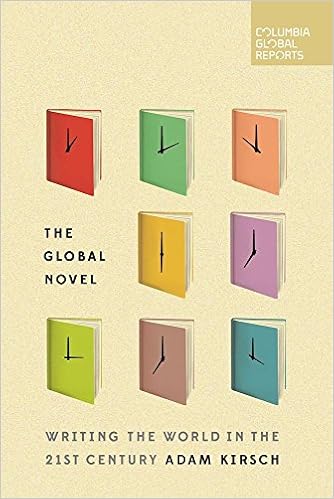By SEAN NAM
 IMAGE/Amazon
IMAGE/Amazon
The story, according to Genesis 11, goes that the whole of mankind once shared a single common language, but instead of obeying God and spreading themselves across the world, they decided to remain where they were and “make a name for ourselves” by creating a structure so tall that it would reach the heavens. The Tower of Babel — as this edifice has come to be known — never came close to touching those celestial heights as God, presumably irked by man’s presumptuousness, scuttled their outsized plans by coming down to foist a new language for every tongue, thus causing confusion and forcing them to flee from the project and each other.
Aside from being a cautionary tale on the folly of human pride (thus making it a re-enactment of The Fall), the Babel story is often invoked to explain, in etiological terms, how the world came to have so many nations and languages. It’s tempting to see in it an allegory of our modern world, in which the interchange of people, ideas and goods are occurring rapidly along increasingly borderless and rapid lines. Taken this way, the Biblical passage gives a glimpse of a certain Utopian social order wherein a disparate, diverse group of people can still come together to coexist, to speak, as it were, one language. The tower of Babel, in short, turns out to be a pretty decent picture of globalization in the 21st century.
Indeed, the merits of today’s internationalism seem to be above all suspicion. From new Silicon Valley-funded startups in the thicket of Calcutta slums to ramen shops in Kansas City, globalism as both concept and an everyday fact of life is embraced by today’s well-minded liberal body. So if that’s the case, if the argument for globalism is so water-tight and damn-near irreproachable, why in the area of literature does one find so many supposedly progressive voices constantly bashing the very books that come out of the cauldron of heterogeneity? Why, in other words, are those from the intellectual class so quick to assume the mantle of the God of Genesis, impugning works that should be celebrated for either depicting or inhabiting the qualities of our modern world? Okay, Stieg Larsson and George R. R. Martin may not be the exact arbiters of cultural refinement that one has in mind, but Karl Ove Knausgard? Zadie Smith? Surely, the thinking goes, there’s only a bounty of good that stands to be gained from works of truly international spirit.
These are just some of the needling questions that Adam Kirsch takes to task in his informative, if ultimately wanting, pamphlet-length study, The Global Novel: Writing the World in the 21st Century. It is a direct response to the loosely gathered, but hefty, coalition of world literature dissenters, including, to name a few, Pascale Casanova, Tim Parks, Emily Apter, Minae Mizumura, and the pugnacious editors at n+1. Their argument runs something like this: that the global novel is often nothing more than a commercial product, vulnerable to the worst dumbing-down effects of market capitalism; and that it is a streamlined, mediocre work stripped of intricate language and local references to fit a standard, “one-size-fits-all” rubric — a style guide that aims at maximizing readability across wildly different cultures. Park gets at the heart of the latter point in an essay for The New York Review of Books in 2010 titled “The Dull New Global Novel,” writing that “Kazuo Ishiguro has spoken of the importance of avoiding word play and allusion to make things easy for the translator. Scandinavian writers I know tell me they avoid character names that would be difficult for an English reader.” Such concessions are similar, Parks laments, to the “wearisome lingua franca of special effects in contemporary cinema.” Denuded and purged of difficult particularities, the global novel can then ease itself through all the levels of the literary marketplace’s supply chain until it rakes in a windfall in seven countries.
The New Rambler for more
